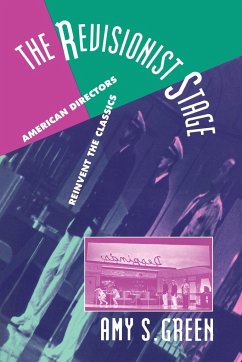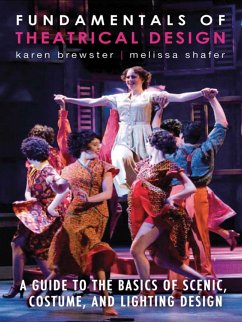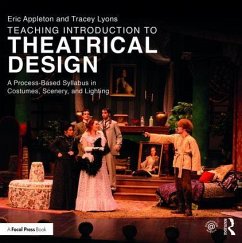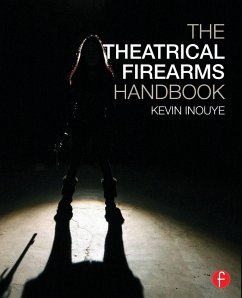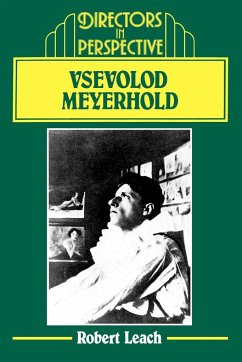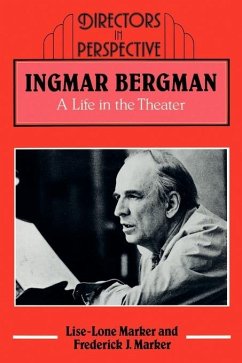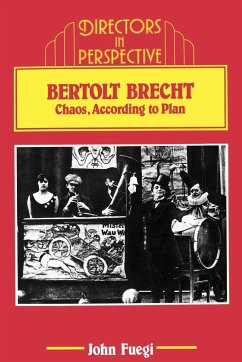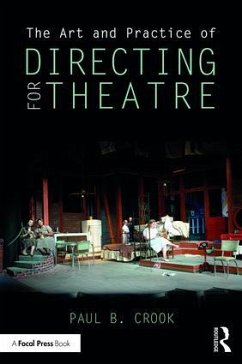
Stage Fright, Animals, and Other Theatrical Problems
Versandkostenfrei!
Versandfertig in 1-2 Wochen
47,99 €
inkl. MwSt.
Weitere Ausgaben:

PAYBACK Punkte
24 °P sammeln!
A study into the things which go wrong on the theatre stage.Why do actors get stage fright? What is so embarrassing about joining in? Why not work with animals and children, and why is it so hard not to collapse into helpless laughter when things go wrong? In trying to answer these questions - usually ignored by theatre scholarship but of enduring interest to theatre professionals and audiences alike - Nicholas Ridout attempts to explain the relationship between these apparently unwanted and anomalous phenomena and the wider social and political meanings of the modern theatre. The book focuses...
A study into the things which go wrong on the theatre stage.
Why do actors get stage fright? What is so embarrassing about joining in? Why not work with animals and children, and why is it so hard not to collapse into helpless laughter when things go wrong? In trying to answer these questions - usually ignored by theatre scholarship but of enduring interest to theatre professionals and audiences alike - Nicholas Ridout attempts to explain the relationship between these apparently unwanted and anomalous phenomena and the wider social and political meanings of the modern theatre. The book focuses on the theatrical encounter - those events in which actor and audience come face to face in a strangely compromised and alienated intimacy - arguing that the modern theatre has become a place where we entertain ourselves by experimenting with our feelings about work, social relations and about feelings themselves.
Review quote:
' - an intelligent and likeable study -' Times Literary Supplement
Table of contents:
Part I: 1. From the promise of performance to the return of theatre; 2. Kleist's Uber das Marionettentheater; 3. From an ethics of performance to an affective politics of theatre; Part II. Stage Fright: The Predicament of the Actor: 1. In an 'awful hole'; 2. A very 'modern' hole; 3. Into the hole and out: diagnosis and cure; 4. Abject hole: first 'blowback'; 5. Face your fear; Part III. Embarrassment: The Predicament of the Audience: 1. Please don't look at me; 2. What is embarrassment?; 3. Towards a politics of shame; Part IV. The Animal on Stage: 1. Mouse in the house; 2. Signs of labour; 3. Animal politics; Part V. Mutual Predicaments: Corpsing and Fiasco: 1. Laughter; 2. Corpsing; 3. Fiasco; 4. Forced entertainment; 5. Lyotard on theatre: 'last blowback'; Afterword; Bibliography.
Why do actors get stage fright? What is so embarrassing about joining in? Why not work with animals and children, and why is it so hard not to collapse into helpless laughter when things go wrong? In trying to answer these questions - usually ignored by theatre scholarship but of enduring interest to theatre professionals and audiences alike - Nicholas Ridout attempts to explain the relationship between these apparently unwanted and anomalous phenomena and the wider social and political meanings of the modern theatre. The book focuses on the theatrical encounter - those events in which actor and audience come face to face in a strangely compromised and alienated intimacy - arguing that the modern theatre has become a place where we entertain ourselves by experimenting with our feelings about work, social relations and about feelings themselves.
Review quote:
' - an intelligent and likeable study -' Times Literary Supplement
Table of contents:
Part I: 1. From the promise of performance to the return of theatre; 2. Kleist's Uber das Marionettentheater; 3. From an ethics of performance to an affective politics of theatre; Part II. Stage Fright: The Predicament of the Actor: 1. In an 'awful hole'; 2. A very 'modern' hole; 3. Into the hole and out: diagnosis and cure; 4. Abject hole: first 'blowback'; 5. Face your fear; Part III. Embarrassment: The Predicament of the Audience: 1. Please don't look at me; 2. What is embarrassment?; 3. Towards a politics of shame; Part IV. The Animal on Stage: 1. Mouse in the house; 2. Signs of labour; 3. Animal politics; Part V. Mutual Predicaments: Corpsing and Fiasco: 1. Laughter; 2. Corpsing; 3. Fiasco; 4. Forced entertainment; 5. Lyotard on theatre: 'last blowback'; Afterword; Bibliography.





